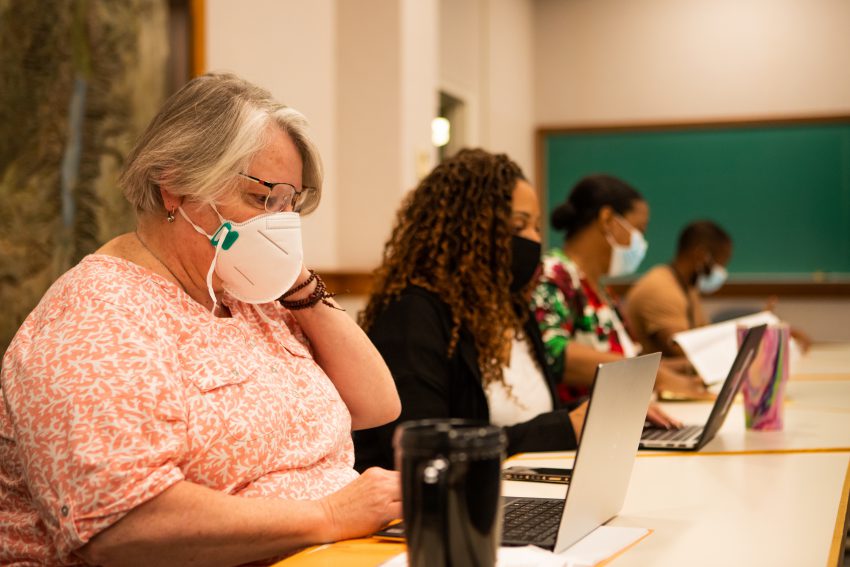At the start of a new academic year, we asked our faculty to give advice for new and returning seminary students. Here’s what they said:
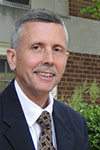 John Burgess, James Henry Snowden Professor of Systematic Theology
John Burgess, James Henry Snowden Professor of Systematic Theology
“Clear thinking is also a way of honoring God.”
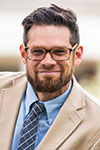 Tucker Samson Ferda, Associate Professor of New Testament
Tucker Samson Ferda, Associate Professor of New Testament
“Try to develop the habit of saying a brief prayer as you begin study each day. Ask God for focus, insight, and charity, and that your learning might lead to deeper love of God and neighbor.”
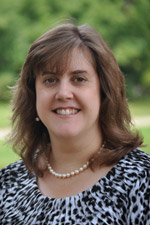 Leanna Fuller, Joan Marshall Associate Professor of Pastoral Care
Leanna Fuller, Joan Marshall Associate Professor of Pastoral Care
“In addition to academic preparation, your experience at seminary helps to form your habits in ministry. For that reason, it’s vital to work now on establishing a regular routine of self-care practices that will sustain your spiritual, physical, and mental/emotional health throughout your ministry career (seeing a spiritual director, getting enough sleep and exercise, maintaining strong relationships with friends and family, setting appropriate boundaries, etc.).”
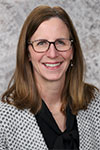 Donna Giver-Johnston, Director of the Doctor of Ministry Program
Donna Giver-Johnston, Director of the Doctor of Ministry Program
“Make time to pray each day—whether a word, a song, a walk, or a breath. It will connect you to God and change you from the inside out. And it may even change the world. ‘To clasp the hands in prayer is the beginning of an uprising against the disorder of the world.’ –Karl Barth”
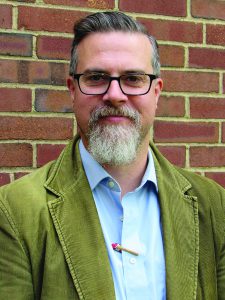 Derek Woodard-Lehman, Lecturer in Theology and Ethics
Derek Woodard-Lehman, Lecturer in Theology and Ethics
“TAKE NOTES! Whether you use an app on your phone that syncs to your tablet and computer, a pencil and a notecard in your pocket, or a fountain pen and fancy notebook, be sure to capture your thoughts wherever and whenever they arise. Some won’t amount to much. Others will become the seeds of papers and projects. A few will become the heart of your vocation. The key is to choose tools you’ll use consistently. There’s nothing worse than having a great idea but then losing track of it.”
Additionally, Associate Dean for Students and Formation Ayana Teter offers this advice:
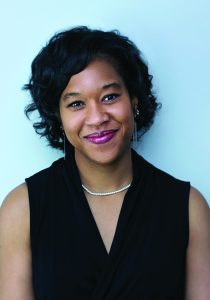 “While the concept of the ‘wounded healer’ is common in ministry circles, do not underestimate the level of health needed to minister effectively. Real spiritual damage is done to communities when spiritual leaders do not do their own work of healing. Do you own work—spiritually, mentally and relationally—throughout this time so that you can emerge with greater health and wholeness and be an ambassador of grace and peace.”
“While the concept of the ‘wounded healer’ is common in ministry circles, do not underestimate the level of health needed to minister effectively. Real spiritual damage is done to communities when spiritual leaders do not do their own work of healing. Do you own work—spiritually, mentally and relationally—throughout this time so that you can emerge with greater health and wholeness and be an ambassador of grace and peace.”
This is the fifth in a series about “seasons of change.” Other stories include:
Starting well as a pastor in a new place (Aug. 11)
